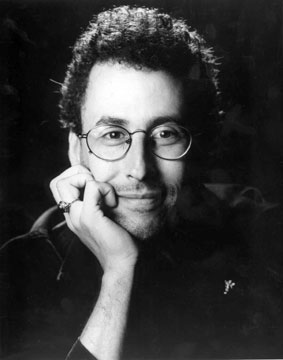Kushner, Communism, Serialism, and Obsolescence
Tony Kushner’s epic play The Intelligent Homosexual’s Guide to Capitalism and Socialism With a Key to the Scriptures (currently playing at the Public Theater) is a hyper intellectualized allegory disguised as a family drama about a clan of hyper-intellectuals. The action centers around the patriarch, Gus, a lifetime communist who has lived long enough to see his very ideology, the key tenets of his existence, the very fiber of his being fall squarely on the wrong side of history. What does one do when the system you’ve dedicated your life’s work to has been utterly repudiated? For Gus, unwilling to concede his beliefs as flawed, and uninterested in continuing a futile struggle, the answer appears to be an honorable suicide.
At first blush, this is a scenario that few audience members are likely to find applicable to their lives. In this post cold war era, the notion of a staunch communist is a quaint anachronism. For the modern audience, it’s just too easy to dismiss Gus’s ideals as wrongheaded. But what if it wasn’t so clear? What if Gus’s passions weren’t for an idea that was unpopular but not (yet) universally disregarded. Something like… contemporary chamber music?
Surely that’s a stretch. And lord knows I don’t want Proper Discord on my case as yet another blogger bemoaning the “Death of Classical Music”. But personally, I feel like I become more alienated from popular culture with each passing day. It’s that alienation, coupled with a self righteous sense that one’s beliefs are “better” than those of the rest of the world, that leads Gus to despair.
Of course, there are many more supporters of contemporary classical music than there are members of the communist party (I think…), but what if we imagine an even more marginalized group of practitioners. Perhaps a group that up until very recently, was a rather powerful one, one that lorded over the composition community like a politburo.
In the heyday of the 60s, anyone not composing serial music had no chance of being taken seriously by the composition world. This was quite possibly the most ideologically driven time in musical history, stemming in part from the American sponsorship of the Darmstadt Summer Courses, with their dogmatic approach to the avant garde (particularly Boulez), and the American dominance of Carter and Babbitt in the University systems.
But then things started to shift. Minimalism introduced a radical new approach to tonality. By the 90s a few non-serialists actually managed to get tenured positions in composition departments. And now? The serialist stranglehold has been reduced to an enfeebled grasp. Few, if any young composers find themselves drawn to serialism. The intellectual underpinnings are flat out dismissed as irrelevant to music making. Serialism, if considered at all, is just a tool in a grab bag of styles and influences.
I’d be curious to hear how the most zealous of the modernists who owned the last half of the century are responding to their slow loss of influence. I wonder if, sitting in the audience of this great play by our generations greatest playwright, they might see a bit of themselves in Gus’s struggle to deal with obsolescence.

I too feel more alienated from popular culture with each passing day. Maybe I’m getting old. In any case, there’s plenty of unpopular culture out there. More of it every day, in fact. I already have enough CDs to last a lifetime, and new ones are being released faster than anybody could listen to them. As the world changes, some people lose out. I mostly think, though, that people who really like classical music aren’t among them.
Agreed. But people who like to compose serial music and then have their pieces performed by large ensembles may be. Maybe.